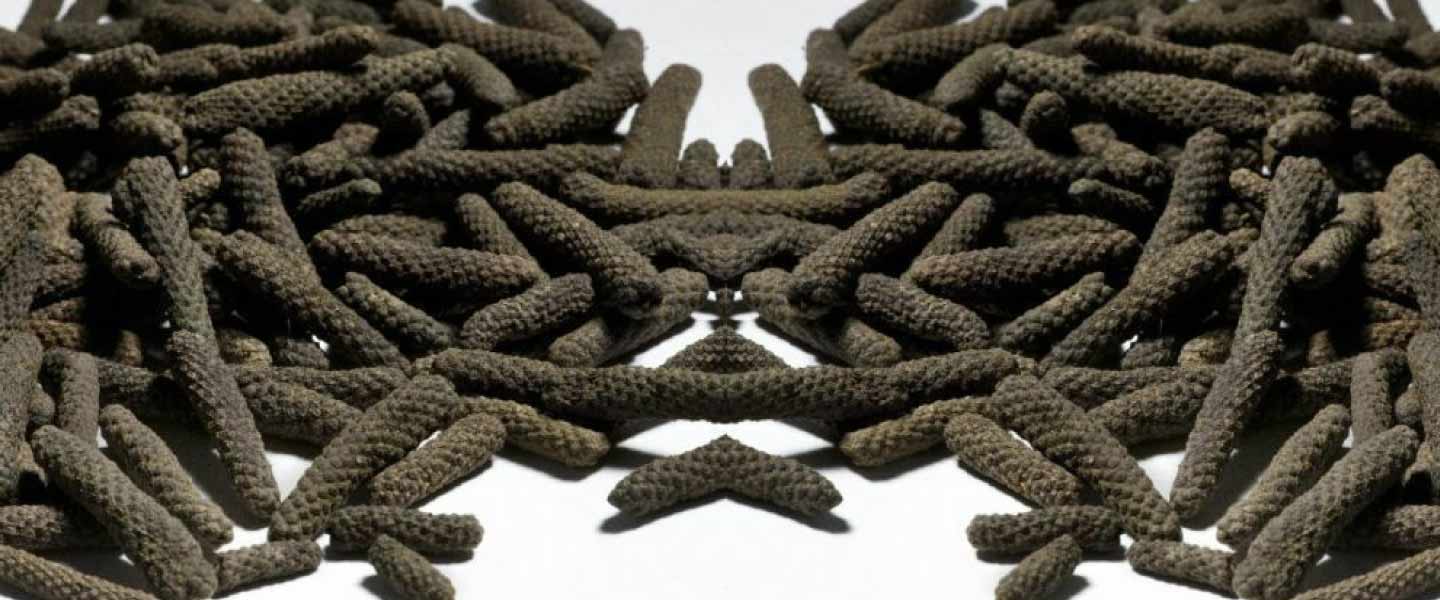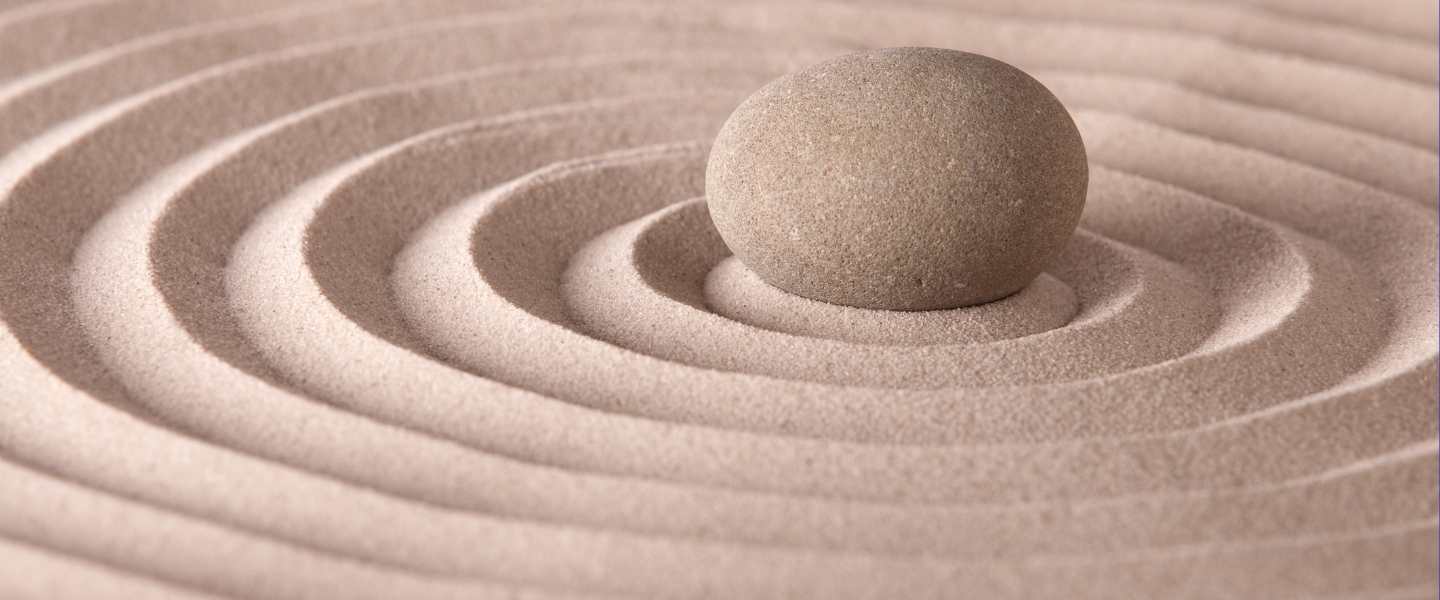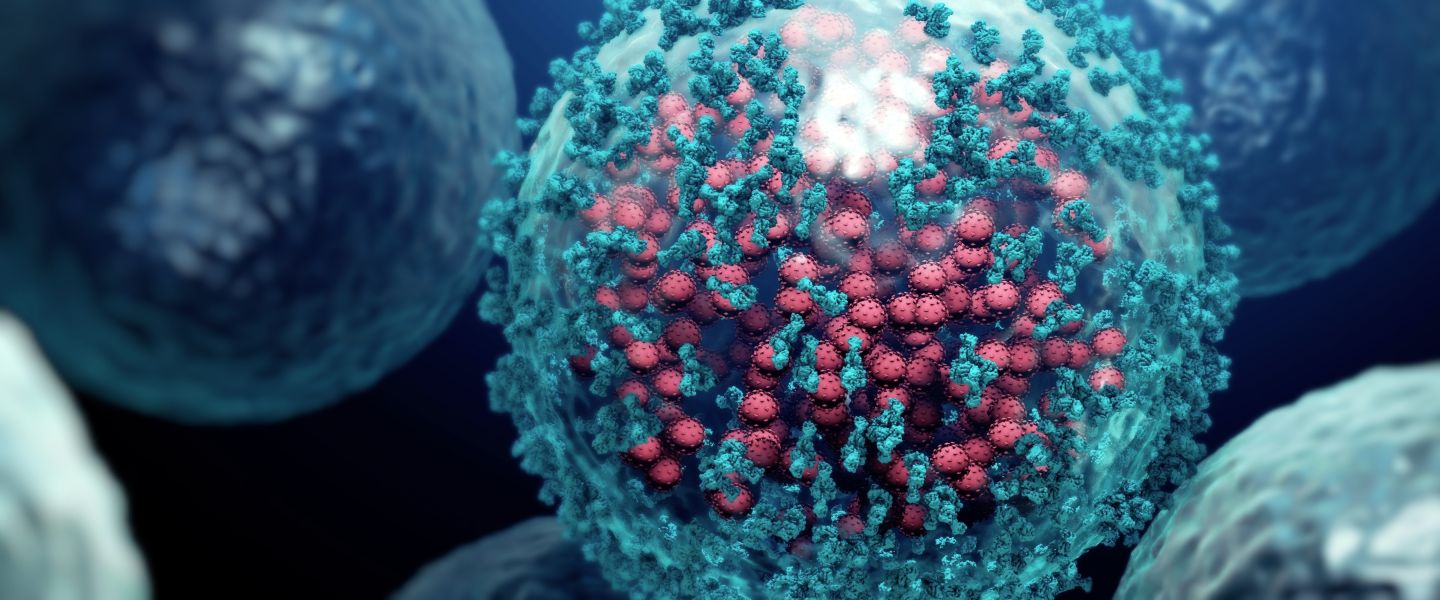SHARING / REPOSTING GUIDELINES: We're very happy to have posts/articles shared as direct links.
However, if you are replicating and re-posting information from this website or our posts, Abbey requests that you:
A) Only ever share articles in part (not in full). (eg. You can lift a paragraph as a way of introducing your readers to the topic) B) Be sure to always provide a direct link/URL back to the full original article here on the MyHealingCommunity.com website. Thanks in advance for your co-operation when sharing and re-posting any and all information that appears on this website.
Hydrogen Looks Set to Transform Cancer Care
In the quest to improve cancer treatment results and boost patient well-being, an unexpected helper has emerged from the world of molecular elements—hydrogen gas. Hydrogen is set to revolutionise cancer care with its ability to remove hydroxy radicals (the bad reactive oxygen species) without affecting the good reactive oxygen species (ROS). It thus plays an important role in immune enhancement. Here's a closer look at the cancer-specific research and its implications for patients and medical professionals.
The Dual Potential of Hydrogen in Cancer Treatment
Molecular Hydrogen's role in cancer treatment is multifaceted, exhibiting a capacity to induce or regulate apoptosis. This process can either lead to the death of harmful cancer cells or protect healthy cells from damage. Interestingly, hydrogen gas has the ability to adjust its role based on the cellular environment—acting as an inhibitor of pro-apoptotic proteins in some instances or as an enhancer of apoptosis mechanisms in others. This dual potential offers a nuanced approach to targeting cancer cells while safeguarding normal ones, highlighting Hydrogen's versatility as a therapeutic agent.
Arresting the Cell Cycle
Research has shown that hydrogen gas can halt the proliferation of cancer cells by arresting their cycle at a critical phase, thereby inhibiting tumour growth. This effect is linked to Hydrogen's ability to regulate various cell cycle-related proteins, including Cyclin D1, CDK4, and CDK6, showing us another intriguing layer of its anti-cancer capabilities.
Immune System Modulation
Controlling malignant tumours' recurrence and spread is challenging due to factors like immuno-senescence and the gradual weakening of the immune system. Tumours can exhaust and deteriorate key immune cells, including T cells and natural killer cells, leading to increased regulatory T cells. Traditional treatments like surgery and chemotherapy can accelerate tumour spread. A 2019 study on 20 non-small cell lung cancer patients showed that two weeks of daily hydrogen inhalation significantly improved immune function, reducing exhausted T cells and increasing NK cells.
In 55 colorectal cancer patients, three months of hydrogen therapy reduced PD-1+ CD8+ T cells, associated with poor prognosis and improved outcomes. Hydrogen gas, combined with the immunotherapy drug Nivolumab, enhanced the effectiveness of exhausted CD8+ T cells in 42 lung cancer patients, leading to significantly longer survival than Nivolumab alone.
It also enhanced the effects of radiotherapy and chemotherapy by increasing the apoptosis rate in cancer cells. A case report described a non-small cell lung cancer patient who, after failing conventional treatments, experienced a reduction and eventual disappearance of brain metastases within a year of hydrogen gas treatment. This treatment also stabilised liver and lung metastases, extending survival.
Oxidative Stress and Inflammation Reduction
One of the most profound benefits of molecular Hydrogen is its selective antioxidant activity. Unlike other antioxidants, Hydrogen discriminates between harmful cytotoxic radicals and beneficial reactive oxygen species (ROS), reducing oxidative stress and inflammation without disrupting essential cellular functions. This specificity is particularly valuable in cancer treatment, where maintaining the balance of cellular processes is critical.
High levels of Reactive Oxygen Species (ROS) play a significant role in the development and progression of cancer, negatively impacting patients undergoing treatments like chemotherapy and radiotherapy. Infections and exposure to fungal pathogens, chemicals, and pollutants exacerbate these levels. Elevated ROS can activate the PI3K/Akt/mTOR pathway, leading to apoptosis in non-cancerous cells and initiating a harmful cycle of toxic effects that may contribute to cancer recurrence and cachexia. In the case of ascites and ovarian cancer cells, increased expression of PGC1α is evident. It plays a significant role in chemoresistance as the process mediates the cells' response to oxidative stress. Hydrogen has been found to play a crucial part in regulating PGC1α expression.
Hydrogen has shown the potential to counteract the downstream inflammation within the tumour microenvironment and in non-cancer cells impacted by aggressive treatment. It does this by minimising electron leakage in the electron transport chain, preventing the generation of superoxide in mitochondrial complex I, and correcting electron flow. This, in turn, reduces oxidative damage within the mitochondria of healthy cells.
Cancer patients must manage excessive systemic levels of ROS promptly, with guidance from an integrative health professional. Equally important is identifying and addressing the underlying causes and contributors of the excessive ROS with the guidance of a functional, naturopathic, or integrative health practitioner, ensuring a comprehensive approach to treatment and care.
Cancer Signalling Pathways
Hydrogen is emerging as a promising therapeutic agent by modulating cellular signalling pathways. Its influence on specific proteins and RNA, crucial in cancer progression, highlights its potential as part of comprehensive cancer care strategies. RNA sequencing analysis revealed hydrogen-induced TNF/NF-κB and apoptosis pathways in endometrial cancer cells.
Hydrogen has been shown to reduce STAT3/Bcl2 signalling, promoting cancer cell death and encouraging autophagy. Furthermore, it suppresses the expression of the long non-coding RNA MALAT1 and the transcription factor EZH2, both implicated in the proliferation and migration of gastric cancer cells, further revealing its significant therapeutic promise.
Integrative Approaches to Cancer Therapy
In a comprehensive follow-up study, 82 cancer patients at stages III and IV underwent treatment through hydrogen inhalation, adhering to a "real world evidence" methodology over a period of 3 to 46 months. Remarkably, within the initial four weeks of treatment, participants experienced significant improvements in fatigue, insomnia, anorexia, and pain, indicating a positive response to the therapy. Their overall physical condition saw a notable enhancement of 41.5%, with lung cancer patients showing the most significant improvement, while those with pancreatic and gynecologic cancers experienced the least progress.
In cases where tumour markers were elevated—58 in total—a promising 36.2% displayed a reduction within 13 to 45 days, averaging at 23 days post-inhalation-treatment initiation. This effect was most pronounced in lung cancer patients, with pancreatic and hepatic cancer patients observing the least reduction.
Out of 80 patients with visible tumours on imaging scans, the overall disease control rate post-hydrogen inhalation treatment was 57.5%, including cases of complete and partial remission occurring between 21 and 80 days, with a median of 55 days. The disease control rate was significantly higher in stage III patients compared to those at stage IV.
These studies underscore the therapeutic potential of hydrogen inhalation using machines with a combined hydrogen and oxygen flow rate of 1800 and 3000ml/min. They also open avenues for further research into tailored treatments for different cancer types.
Benefits
Beyond its direct anti-tumour actions, Hydrogen offers multiple benefits that address the side effects of conventional cancer treatments. From alleviating bone marrow damage to protecting the healthy cells of the gut, brain, kidneys, and liver during chemotherapy, hydrogen therapy supports patient health holistically. Research into its role in enhancing the outcomes of immunotherapy, in particular, emphasises the clear potential of Hydrogen as part of combination therapy regimens of the future.
Administration and Access to 1800 and 3000 ml/min Hydrogen Machines
The versatility of Hydrogen extends to its administration methods, with drinking Hydrogen-rich water throughout the day being both safe and effective alongside Hydrogen inhalation being accessible and adaptable to various patient needs, including those diagnosed with lung cancer, where inhalation using a machine that produces 3000 ml/min has shown significant promise. When writing this summary, the HAH machines were the only hospital-grade 3000 ml/min machines shipped worldwide directly to patients via FedEx and DHL. The HAH site also has an 1800 ml minute machine at a great price.
Learn More
To learn more about the author's experience using the HAH-3000, study support group members are welcome to contact the author directly via the Hydrogen thread in the group or send questions directly via this website's contact page. Readers can also learn much about Hydrogen research and hospital-grade Hydrogen machines at the Health and Hydrogen website.
The Path Ahead
The insights gleaned from ongoing research into molecular Hydrogen's role in cancer treatment are heartening. Hydrogen stands out as a potentially powerful tool in oncology because it offers a multifaceted approach that includes selective antioxidant activity, apoptosis regulation, cell cycle arrest, and modulation of cellular pathways.
Its capacity to mitigate the adverse effects of existing treatments while directly combating cancer cells opens the door to more refined and patient-friendly therapeutic strategies. Hydrogen therapy may become a cornerstone of future cancer care, embodying hope for patients worldwide.
Cancer patients and doctors are encouraged to explore this emerging therapeutic field, as hydrogen therapy represents not just a glimpse into the future of cancer care but a tangible, evolving reality with extraordinary potential.
Discount Code for HAH Hydrogen Machines
The author of this summary is in long-term remission from a metastatic breast cancer diagnosis in 2017 and now owns the HAH-3000 machine shown here and uses it daily to inhale hydrogen and drink hydrogen-rich water. An affiliate discount on all HAH machines for the Healing Cancer Study Support Group members requires the code abbey5 to be entered on the HAH website during checkout to have 5% taken off the total.
Hydrogen Water Bottles
There is not much research in my awareness as yet indicating that drinking hydrogen-rich water can have anywhere near the powerful anti-cancer immune modulating impact that three to six hours a day on an 1800 or 3000 machine might have, but if a patient with excessive chronic inflammation post-treatment and is not able to afford a machine, then drinking HRW throughout the day is best done with a good bottle not tablets for the sake of purity. I have begun summarising the research on the wide range of benefits of drinking HRW and am posting my summary here as a separate article. These bottles are the ones I have selected as one of the best on the market, and the company has given me a 20% discount code to share, which is MHC20. In return, I receive support from the hydrogen bottle company, which contributes to my capacity to continue offering my study support group members my research support time and energy for free. If you have an audience keen to explore hydrogen rich water and want to share your discount link for these great bottles, you can sign up here.
References
Akagi, J., & Baba, H. (2018). Hydrogen gas restores exhausted CD8+ T-cells in patients with advanced colorectal cancer to improve prognosis. Oncology Reports. https://doi.org/10.3892/or.2018.6841
Akagi J, Baba H. Hydrogen gas activates coenzyme Q10 to restore exhausted CD8+ T cells, especially PD-1+Tim3+terminal CD8+ T cells, leading to better nivolumab outcomes in patients with lung cancer. Oncol Lett. 2020;20(5):258. doi:10.3892/ol.2020.12121
Chen, Ji-Bing1,2; Kong, Xiao-Feng1; Qian, Wei1; Mu, Feng1; Lu, Tian-Yu1,2; Lu, You-Yong3; Xu, Ke-Cheng MD1,2,*. Two weeks of hydrogen inhalation can significantly reverse adaptive and innate immune system senescence patients with advanced non-small cell lung cancer: a self-controlled study. Medical Gas Research 10(4):p 149-154, Oct–Dec 2020. | DOI: 10.4103/2045-9912.304221
Chen J, Mu F, Lu T, Du D, Xu K. Brain Metastases Completely Disappear in Non-Small Cell Lung Cancer Using Hydrogen Gas Inhalation: A Case Report. Onco Targets Ther. 2019;12:11145-11151. Published 2019 Dec 17. doi:10.2147/OTT.S235195
Fu Z, Zhang J. Molecular hydrogen is a promising therapeutic agent for pulmonary disease. J Zhejiang Univ Sci B. 2022;23(2):102–122. doi:10.1631/jzus.B2100420
Higashimura Y, Baba Y, Inoue R, et al. Effects of molecular hydrogen-dissolved alkaline electrolysed water on the intestinal environment in mice. Med Gas Res. 2018;8(1):6-11. Published 2018 Apr 18. doi:10.4103/2045-9912.229597
Hirano SI, Aoki Y, Li XK, Ichimaru N, Takahara S, Takefuji Y. Protective effects of hydrogen gas inhalation on radiation-induced bone marrow damage in cancer patients: a retrospective observational study. Med Gas Res. 2021;11(3):104-109. doi:10.4103/2045-9912.314329
Izquierdo-Torres, E., Hernández-Oliveras, A., Fuentes-García, G., & Zarain-Herzberg, Á. (2020). Calcium signalling and epigenetics: A key point to understand carcinogenesis. Cell Calcium, 91, 102285. https://doi.org/10.1016/j.ceca.2020.102285
Jiang, Y., Liu, G., Zhang, L., Cheng, S., Luo, C., Liao, Y., & Guo, S. (2018). Therapeutic efficacy of hydrogen-rich saline alone and in combination with PI3K inhibitor in non-small cell lung cancer. Molecular Medicine Reports, 18(2), 2182-2190. https://doi.org/10.3892/mmr.2018.9168
Johnsen, H. M., Hiorth, M., & Klaveness, J. (2022). Molecular Hydrogen Therapy—A Review on Clinical Studies and Outcomes. Molecules, 28(23), 7785. https://doi.org/10.3390/molecules28237785
Li S, Liao R, Sheng X, Luo X, Zhang X, Wen X, Zhou J, Peng K. Hydrogen Gas in Cancer Treatment. Front Oncol. 2019 Aug 6;9:696. doi: 10.3389/fonc.2019.00696. PMID: 31448225; PMCID: PMC6691140.
Mohd Noor MNZ, Alauddin AS, Wong YH, et al. A Systematic Review of Molecular Hydrogen Therapy in Cancer Management. Asian Pac J Cancer Prev. 2023;24(1):37-47. Published 2023 Jan 1. doi:10.31557/APJCP.2023.24.1.37
Rochette L, Dogon G, Zeller M, Cottin Y, Vergely C. Antitumoral Activity of Molecular Hydrogen and Proton in the Treatment of Glioblastoma: An Atypical Pharmacology? Brain Sciences. 2023; 13(8):1168. https://doi.org/10.3390/brainsci13081168
Suliman, M. M. (2022). CD20+ T cells: Phenotype, origin and presence in the tumour microenvironment. https://core.ac.uk/download/544394215.pdf
Yamamoto, H., Ichikawa, Y., Sato, B., Takefuji, Y., & Satoh, F. (2021). Molecular Hydrogen as a Novel AntitumorAntitumor Agent: Possible Mechanisms Underlying Gene Expression. International Journal of Molecular Sciences, 22(16). https://doi.org/10.3390/ijms22168724
Yang Q, Ji G, Pan R, Zhao Y, Yan P. Protective effect of hydrogen-rich water on liver function of colorectal cancer patients treated with mFOLFOX6 chemotherapy. Mol Clin Oncol. 2017;7(5):891-896. doi:10.3892/mco.2017.1409
Yao, T., Yang, H., & Li, L. (2019). Intake of Molecular Hydrogen in Drinking Water Increases Membrane Transporters, p-Glycoprotein, and Multidrug Resistance-Associated Protein 2 without Affecting Xenobiotic-Metabolizing Enzymes in Rat Liver. Molecules, 24(14). https://doi.org/10.3390/molecules24142627
Zanini, D., Todorovic, N., Korovljev, D., Stajer, V., Ostojic, J., Purac, J., Kojic, D., Vukasinovic, E., Djordjievski, S., Sopic, M., Guzonjic, A., Ninic, A., Erceg, S., & Ostojic, S. M. (2021). The effects of 6-month hydrogen-rich water intake on molecular and phenotypic biomarkers of aging in older adults aged 70 years and over: A randomized controlled pilot trial. Experimental Gerontology, 155, 111574. https://doi.org/10.1016/j.exger.2021.111574
Zhou, P., Lin, B., Wang, P., Pan, T., Wang, S., Chen, W., Cheng, S., & Liu, S. (2018). The healing effect of hydrogen-rich water on acute radiation-induced skin injury in rats. Journal of Radiation Research, 60(1), 17-22. https://doi.org/10.1093/jrr/rry074
Zufayri Mohd Noor, M. N., Alauddin, A. S., Wong, Y. H., Looi, C. Y., Wong, E. H., Madhavan, P., & Yeong, C. H. (2023). A Systematic Review of Molecular Hydrogen Therapy in Cancer Management. Asian Pacific Journal of Cancer Prevention : APJCP, 24(1), 37-47. https://doi.org/10.31557/APJCP.2023.24.1.37
Healing Cancer Study Support Facebook Group Members:
Click here to visit the Cancer Study Support Group A-Z list of thread and files. There is a link to the group's Hydrogen thread under H.* MCS offers ULTRAFAST WORLDWIDE SHIPPING with FedEx and UPS
** MCS are a SOCIAL ENTERPRISE - see the We Donate 50% program
DISCLAIMER: Any and all information in this post was gathered from published research in cell lines or animals, or from typical clinical use. It may not be complete, may not have not been verified in humans, and is NOT meant or given as medical advice, but only as a guide to further exploration.
Continue Reading...
BLOG
Inhibition of Epithelial to Mesenchymal Transition (EMT) with Natural Compounds

Piperlongumine

Honokiol possesses powerful anti-cancer properties






